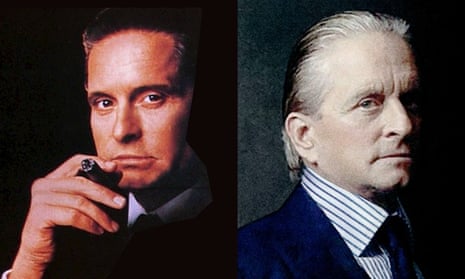Wall Street is a place where memories are short, profit is amoral, and money is the only thing that settles all the scores.
That's why financiers and CEOs are largely destined to overcome any scandal. Money and influence reserve a permanent place at the trough of money. It's usually absurd to hope that any kind of setback – a loss, a bankruptcy, a harrowing proximity to eight insider-trading convictions – will leave a mark. They never do. Disgrace is not a functional term in a business that is still, at its core, based upon relationships with a closed circle of people.
For the powerful movers of money in this country, second acts are not the exception – they are very much the rule.
If you doubt that, you need only keep watching the life and career of hedge-fund manager Steve Cohen. In a traditional middle-class morality tale, he'd be in disgrace after a judge last week told his firm, SAC Capital, to pay the largest-ever fine for insider trading – a cool $1.8bn – to federal regulators. SAC, which is the first firm to ever become a convicted felon, will abide by a five-year period of probation.
But this isn't the middle class, and Steve Cohen is not some hapless homeowner caught helplessly in foreclosure. He is rich, and on Wall Street that means he has leverage. He can negotiate for his own redemption – like so many of his fellow billionaires before him.
"Can Steven Cohen move on from SAC's insider trading past?" Frontline asked this week, and the answer is that he already has. Without even a moment of silence for the past of SAC Capital, Cohen's second act is already underway, with a new firm called Point72 Asset Management that exists solely to manage his multibillion-dollar fortune.
Cohen is not just any hedge-fund manager. If Wall Street had a Godfather, it would be Cohen. He ran SAC Capital, a $15bn hedge fund with a trading floor in Stamford, Connecticut, where he controlled every aspect – including temperature and sound. In order to maintain tombstone silence, phones were set to blink instead of ring. Temperatures of 70 degrees forced traders to stay alert all day, spurring the firm's fashion armor: black fleece jackets with the SAC Capital logo – like a very rich, very exclusive street gang. Video cameras observed every employee.
Steve Cohen is not a man who likes to leave things to chance. That has proven to be a profitable strategy on Wall Street. Cohen made $2.3bn last year. It's hard to picture that kind of wealth, but it comes to just over $262,000 an hour – if you count all the hours in 2013, including the ones during which he was sleeping and staring at computer screens and talking with his lawyers. That's a pretty good haul considering that 2013 was an annus terribilis, in which Cohen was being pursued by the most aggressive prosecutor of Wall Street crimes; in 2012, a less grim year, Cohen made $1.4bn, according to Alpha, a trade magazine for hedge funds.
But even if Cohen were not Cohen – if he were not immensely rich, and immensely powerful, and shadowy and charismatic – he would still be likely to pop back up on the Street. Most scandal-prone financiers usually keep their place at the table, even if they leave it for a while. Former ImClone CEO Sam Waksal, once named one of the "10 most crooked CEOs" by Time, left jail long ago and is wheeling and dealing once again with a new venture called Kadmon.
Other examples abound. Jack Grubman, the Citigroup telecommunications analyst who was banned from the securities industry in 2002, started a consulting firm called Magee Group in 2003. Michael Milken, the brilliant junk-bond trader who was also banned for life in 1991, started the Milken Institute think tank and presides over a yearly conference that is a kind of Davos for the West Coast.
Lesser involvement with business misfortune or scandal also prove no obstacle to advancement. Mary Meeker, the analyst who was often called "Queen of the Net", was named in hundreds of post-tech-crash lawsuits but went on to a successful career as a venture capitalist. John Thain, forced out of Merrill Lynch for an overexpensive commode, created a new life as the chief executive of lender CIT. Even Dick Fuld, the former CEO of Lehman Brothers, has a place to show up for work every day: an advisory firm he founded, Matrix Advisors.
History shows that Steve Cohen, wrapped in his new Point72 fleece and his billions, will get on just fine. Money proves an effective balm to any outbreaks of morality on Wall Street – and Cohen is well-stocked with enough dollars to soothe the most nervous traders. Even if prosecutors manage to find a way to link him to unsavory trading behavior, Cohen will still thrive, and he has every reason to sail on optimistically as long as his money holds up. As the Dowager Countess on Downton Abbey correctly quipped, defeatism is reserved for the middle class.

